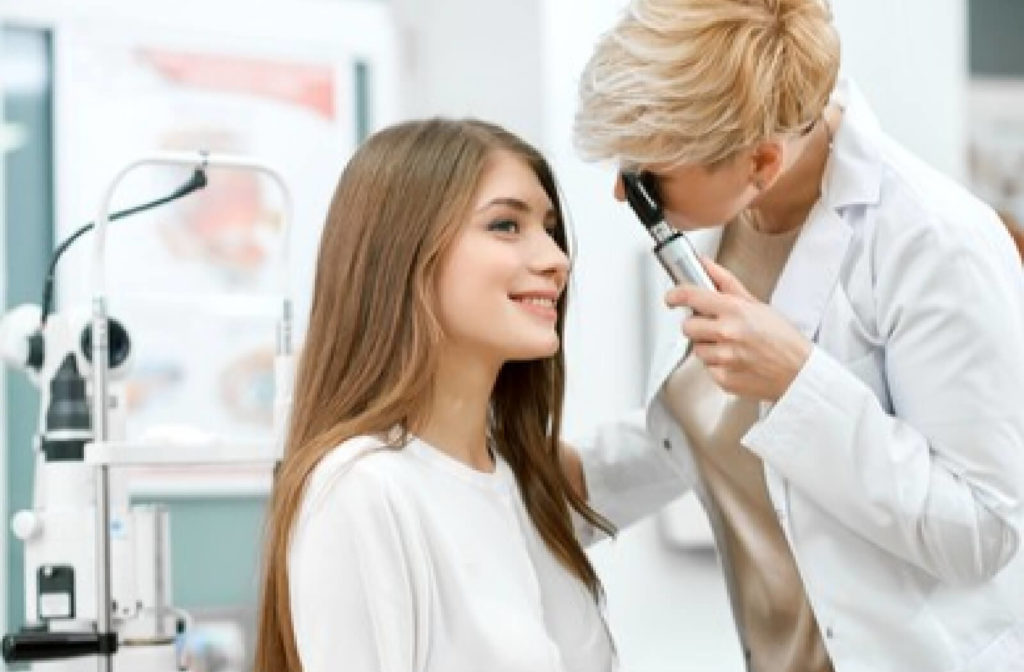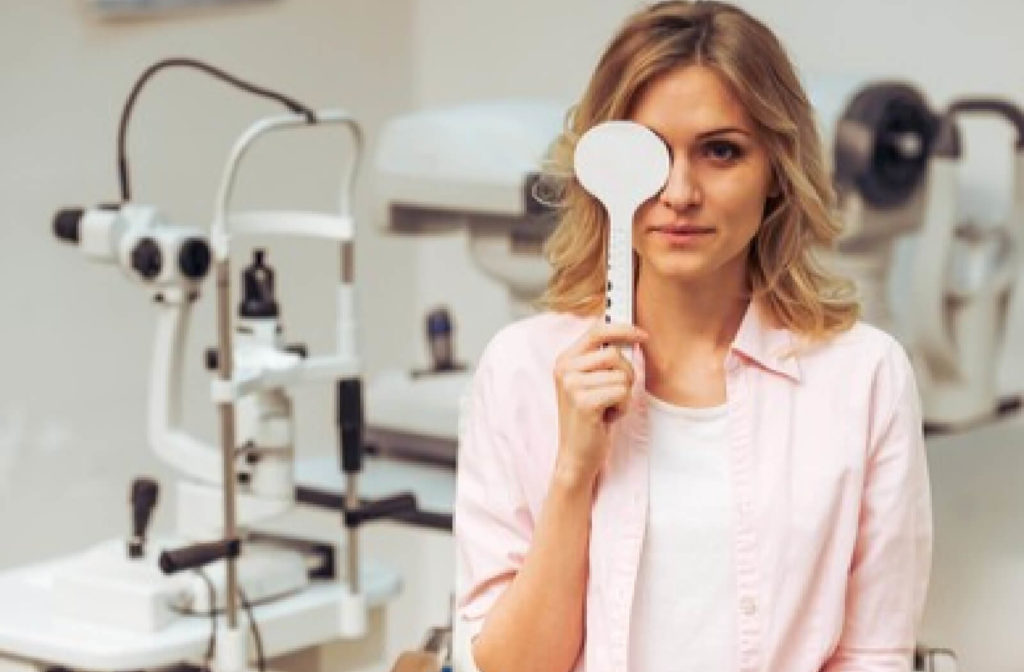Diabetes is a chronic condition that affects the way the body processes sugar (glucose). It occurs when the pancreas doesn’t produce enough insulin or when the body’s cells don’t properly use the insulin that’s produced.
This can cause high levels of sugar in the blood, leading to a range of health problems if left unmanaged. While diabetes affects many aspects of health, it can have a particularly profound impact on the eyes.
Because diabetes can have such a big impact on the health of your eyes, it’s important to get regular diabetic eye exams. But what Is a diabetic eye exam?
Diabetic eye exams are not much different from regular eye exams, there is just more attention to the blood vessels in your eyes and the health of your retina.
What Happens During a Diabetic Eye Exam
If you have diabetes, it’s important to have regular eye exams to check for early signs of eye problems. These exams, called diabetic eye exams, are usually performed by an ophthalmologist or optometrist.
In many ways, diabetic eye exams are similar to regular eye exams. However, during a diabetic eye exam, your eye doctor will pay special attention to the health of your retina and the integrity of the blood vessels in your eye.
During a diabetic eye exam, the eye care professional will typically:
- Conduct a visual acuity test: This is a standard test that measures how well you can see from a distance and up close. You will be asked to read from a chart or identify symbols on a screen.
- Check your eye pressure: High eye pressure can be a sign of glaucoma, a condition that can cause damage to the optic nerve.
- Examine the inside of your eye: Your eye care professional may use a dilating eye drop to widen your pupils, which allows them to get a better view of the inside of your eye. They may use a lighted instrument called an ophthalmoscope to examine the retina, blood vessels, and other structures inside your eye.
- Check for signs of diabetic retinopathy: This is the most common eye problem associated with diabetes. During this part of the exam, your eye care professional will look for any changes in the blood vessels of the retina, such as swelling or leaking. They may also look for signs of diabetic macular edema, a condition that causes swelling in the central part of the retina.

What Is Your Optometrist Looking For during a Diabetic Eye Exam?
During a diabetic eye exam, your optometrist will check for a range of potential eye issues, including:
- Diabetic retinopathy
- Glaucoma
- Cataracts
Diabetic Retinopathy
This is a common complication of diabetes that affects the blood vessels in the retina (the light-sensitive tissue at the back of the eye). Diabetic retinopathy is a condition that can lead to vision loss if left untreated. Some of the symptoms you may experience include:
- Difficulty with central vision, which can affect activities such as reading or driving
- Changes in color perception
- Blurry vision
- Seeing spots or blank areas in your field of vision
- Floaters, which are small spots that appear to be moving in your vision and are caused by bleeding in the eye.
Glaucoma
People with diabetes are at an increased risk of developing glaucoma, a condition that causes damage to the optic nerve. This can lead to vision loss if it’s not treated promptly.
Cataracts
Diabetes can also increase your risk of developing cataracts, which are cloudy areas in the lens of the eye that can cause vision problems.
Treatment for Diabetic Eye Problems
If any problems are uncovered during the exam, your eye care professional may recommend treatment, such as medication or laser surgery, to prevent further vision loss. It’s important to follow their recommendations and to have regular follow-up exams to monitor your eye health.
- Medication: If you have diabetic retinopathy, your eye care professional may recommend medication to help slow the progression of the disease.
- Laser surgery: Laser surgery, also known as photocoagulation, can be used to treat various diabetic eye problems. For example, it can be used to seal leaking blood vessels in the retina and to shrink abnormal blood vessels that grow on the surface of the retina.
Diabetic Eye Exam vs. Regular Eye Exam
Diabetes can lead to a range of eye conditions, including diabetic retinopathy, glaucoma, and cataracts, which can cause vision loss or even blindness if left untreated. One of the most effective ways to catch these eye conditions early is through regular eye exams. But what’s the difference between a diabetic eye exam and a regular eye exam?
A regular eye exam typically includes a visual acuity test, which measures how well you can see at various distances. Your eye doctor may also dilate your pupils and examine your eye’s internal structures to check for signs of eye diseases or conditions such as glaucoma or cataracts.
During a diabetic eye exam, your eye doctor will look for signs of diabetic retinopathy by performing a dilated eye exam. Your eye doctor may use eye drops to widen your pupils, allowing them to examine your retina more closely.
Your eye doctor may also perform a fluorescein angiography test, which involves injecting a dye into your arm and taking images of the blood vessels in your retina. This test can help detect any abnormalities or leaks in the blood vessels that can indicate diabetic retinopathy.
Additionally, a diabetic eye exam may include a check of your intraocular pressure to screen for glaucoma, another condition that can cause vision loss or blindness.
Diabetic Eye Exams at Hercules Optometric Group
By having regular diabetic eye exams, you can help protect your vision. Regular diabetic eye exams are important because:
- Diabetes can cause serious eye problems
- Early detection is key to preventing further vision loss
- It helps maintain good eye health
If you have diabetes and are concerned about the health of your vision, book an eye exam with us! We’re here to help you feel confident in your eye care and help you feel better, look better, and see better.



